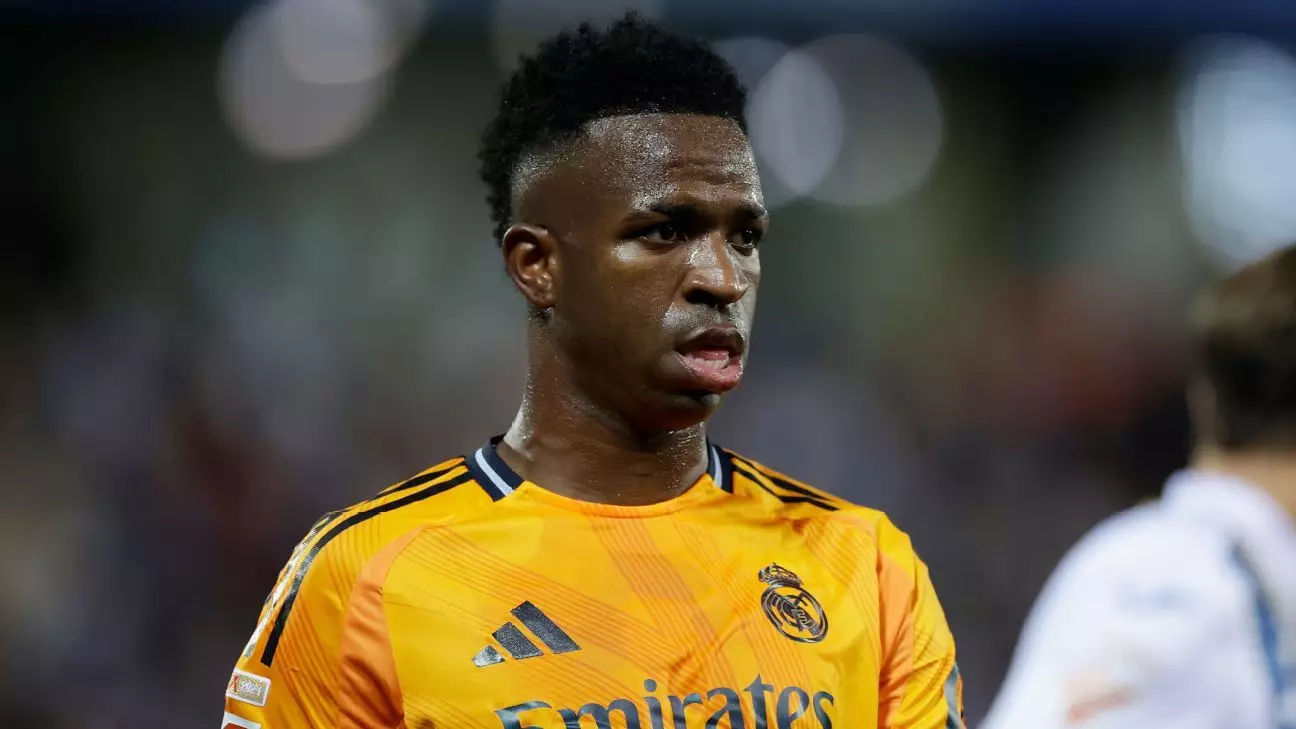The relationship between professional athletes and sports administrations can be quite complex, often influenced by the nuances of media rights and broadcasting regulations. Recently, Real Madrid’s young superstar Vinícius Júnior found himself at the center of a controversy involving LaLiga president Javier Tebas. The crux of the issue lies in a claim made by Tebas, alleging that Vinícius engaged in piracy by watching a Champions League match while injured, raising questions about legality and access to football broadcasts.
The dispute ignited when Vinícius posted an Instagram story suggesting he was watching Real Madrid’s match against Liverpool on a Brazilian TV channel. It is essential to recognize the significance of this moment—not just for the player, but for the broader implications it has for athletes navigating their digital lives in the era of social media.
The Legal Ramifications: Privilege Versus Piracy
In a public event addressing audiovisual fraud, Tebas expressed his belief that Vinícius’s viewing of the game through a Brazilian channel constituted an illegal act. He argued that any viewing in Spain should require access through the designated rights holder, Movistar Television. This perspective underscores a critical aspect of the sports industry: the stringent regulations around broadcast rights that dictate how and where fans can consume their favorite sports.
Yet, it’s vital to approach Tebas’s claims with a discerning eye. Sources later clarified that Vinícius does not employ VPN services, a common workaround for accessing international content. Instead, he reportedly uses an international plan from a Brazilian telecom operator, which provides legitimate access to Brazilian broadcasts without breaching any laws. This detail is crucial, as it paints a different image of the situation—a narrative of a player exercising his rights rather than a perpetrator committed to piracy.
The Broader Implications: Addressing Racism and Defending Rights
What adds another layer to this situation is the history of tension between Vinícius and Tebas, primarily surrounding issues of racism in LaLiga. Vinícius has been vocal about the way racism is handled within Spanish football, accusing the league of inadequately addressing incidents that affect players like him. This recent clash over broadcasting rights can be perceived not only as a personal dispute but also as reflective of the broader struggle for player rights and protection within a complex institutional framework.
As an influential figure in Spanish football, Tebas’s public assertions about Vinícius might serve to deflect attention from pressing issues, such as racism and discrimination that plague the sport. Instead of focusing solely on the actions of players, the league must reassess its accountability in creating a safer environment for all athletes—something that should weigh heavily in public discourse.
The disagreement between Vinícius Júnior and Javier Tebas highlights the necessity for clarity and fairness in the realm of sports broadcasting. A dialogue fostering understanding between athletes and administrators is needed, particularly when misunderstandings arise that can tarnish a player’s reputation. Moving forward, it is essential for LaLiga and its officials to focus on addressing systemic issues, thereby ensuring that players are not only free to enjoy their sport but also supported in their fight for justice and fairness within the league. The proactive communication by Vinícius’s representatives signals hope for resolution, advocating for a more harmonious relationship between players and governing bodies in the world of football.

